1. E-Walet Focus writing│E-Walet and Its prospect in BD
E-Walet and Its prospect in BD
Focus writing: E-Walet and Its prospect in BD
COVID-19 continues to affect people’s lives in various ways. People are staying indoors because of restrictions on movement and from a fear of being infected. While this is the right thing to do, one still needs to purchase household essentials and send money to relatives who need it. Essential service industries also need constant cash flows and payments. A fish seller from Sonargaon, Narayanganj in Bangladesh, Jamal offers one such service. He travels 30 km every day to Dhaka from his village to sell fish. He would receive bulk payments from customers-once in 15-20 days-both in cash and in his bKash wallet. However, that was the story from before COVID-19.
PROACTIVE STEPS TAKEN BY BANGLADESH BANK: Bangladesh Bank asked the the Home and Finance Ministries and Bangladesh Police to facilitate mobile financial services (MFS) as emergency services amid the ongoing closure following the coronavirus outbreak. The Bangladesh Bank has also made MFS cheaper through its directive, which says that no transaction charge would be levied to purchase medicines and other essential commodities using MFS P2P transfer and through debit or credit cards. Further, the directive mandates no charges for MFS cash-out of BDT 1,000 daily at a time. The current charges are BDT 20 for each withdrawal amounting to BDT 1,000. The monthly ceiling of MFS P2P transactions has been raised from BDT 75,000 to BDT 200,000.
In addition, the Payment Systems Department of Bangladesh Bank has directed readymade garment factories to pay salaries to workers and employees through MFS accounts. In response, bKash, Rocket, and Nagad have already registered 1.92 million RMG workers. The market share of RMG workers is 970,000 for bKash, 550,000 for Rocket, and 400,000 for Nagad out of total 1,920,000. We understand that bKash continued to register more than 50,000 new wallets of RMG workers every day. Almost 70 per cent of these wallets are registered at its digital registration agent points.
TRANSACTIONS CONTINUE TO REDUCE: bKash has been managing, on an average, BDT 4,500 million (USD 53 million) per day since the government declared general leave from March 27, 2020. In the pre-COVID-19 situation, bKash handled approximately BDT 10,000 million (USD 119 million) per day in terms of transaction value.
A significant number of MFS agents remain closed under the current closure, while the remaining agents open their shops for limited hours in a day. The regular earnings of people from the low-income group, such as rickshawpullers and daily labourers have reduced significantly and are even nonexistent in many cases. People from the low-income group have been living on limited aid from the government, social organisations, and NGOs. Such lower-income people use cash-in/cash-out and P2P almost every day and in the present situation, such transactions have reduced. An ongoing MSC study has found that the incomes of some MFS agents have reduced by 50 to 70 per cent. “I hardly open my shop to run the agency business during this lockdown. My income from MFS transactions declined by more than 80 per cent due to this pandemic. If it continues like this, I will have to look for aid from various sources in my community”, said a rural MFS agent from Louhajong, Munshiganj
Activity at ATMs has reduced as well. For leading private sector banks, daily transactions at ATMs and at agent banking outlets have reduced by 30 to 35 per cent and 70 per cent respectively. These extraordinary reductions in transactions can be attributed to the restricted movement of people, the slump in economic activities, and the closure of service points.
The aforementioned fish seller Jamal has been affected as well. While he is not selling fish currently, he has payments due from his customers, which could help him wade through these difficult times. However, some of his customers only have a Rocket wallet and cannot send money to him on his bKash wallet.
Money is indeed not moving smoothly between rural and urban areas since banks and agent banking outlets have limited operations. MSMEs that operate through banks have been facing challenges in sending and receiving money, as banks have not been working in full capacity.
CAN THE INTEROPERABILITY OF WALLETS HELP?: In our opinion, interoperability between MFS wallets will be very useful for Bangladeshis now and in the future too, if the country develops interoperable systems. Under interoperability between MFS wallets, customers who have, say a Rocket wallet will be able to send money to a bKash wallet, and the other way around. Developing interoperability between wallets is complex. It should ensure that the customer user experience is seamless and pricing is just. The backend system of such functionality needs to be considered carefully as well, such as the settlement process for providers and pricing among the parties, among other factors. The regulator needs to establish a governance framework that is transparent and inclusive and ensures strong Anti-Money Laundering (AML) compliance for interoperability.
Interoperability between MFS wallets will have an impact on more than 81 million registered wallets across 64 districts in Bangladesh-and positively, we believe. We wonder if Bangladesh Bank would like to launch interoperability between MFS wallets.
Yet this type of interoperability may have unintended impacts on how agents operate. We expect that many customers will use agent outlets to conduct such interoperable transactions. Yet agents could influence customers to switch providers or deny transactions or charge unauthorised fees. However, we believe that the Bangladesh Bank will tighten regulations as needed to ensure thriving competition in the market.
The most profound impact will be on people’s financial lives. It will remove the current barriers to transactions when the receiver or sender subscribes to different MFS providers. Interoperability between MFS wallets will encourage the use of MFS and provide people alternatives to using cash that is potentially contaminated with the virus. It will help all MFS users, including the newly on-boarded RMG workers. Interoperability between MFS wallets will ease making and receiving payments for goods and services, especially for MSMEs, who are now more likely to adopt payments via MFS wallets as the Bangladesh Bank has already increased the monthly limit for P2P to BDT 200,000. Interoperability has the potential to accelerate the move towards a digital Bangladesh.
02.Banking and Financial Technology Use during Covid – 19
Banking and Financial Technology Use during Covid – 19
Banks are an important economic driving force of a country and there is no chance for the economy to stay afloat if the banking sector collapses.
So even in this corona epidemic, the banking sector has to be kept active by any means. So even in this corona epidemic, the banking sector has to be kept active by any means.
As a result, bankers and customers are at risk. The way to overcome this problem is to set up a banking system so that on the one hand bankers can offer banking services at home and on the other hand customers can avail banking services at home. Much of the payment can be made sitting at home.
Increased use of debit cards
Almost all banks now have debit card service. All current and savings account customers can get debit card service, through which customers can easily withdraw money from ATMs or make purchases using Point of Sale (POS) and ecommerce.
At present, there are only 90 lakh debit card subscribers as compared to about 80 million account holders. We now have ATM and Point of Sale (POS) networks in all our divisional cities, district towns and mooseball towns. If necessary, with the permission of Bangladesh Bank, in the interest of customers and bankers, at least city and district city account holders can be provided with compulsory debit cards. There are also some discounts when purchasing.
Increase in the number of internet-banking customers
Money can be remitted from one bank to another through internet-banking at home, which can serve a large number of clearing check customers at home.
03.The Role Of Banks / Central Banks In Dealing With Corona Focus Writing
The role of Banks / Central Banks in dealing with Covid – 19
The need for the banking sector to restructure the fragile economic system of the country in any major crisis is immense. At a time when the global epidemic caused by the coronavirus has devastated the economy of Bangladesh, the participation of the banking sector has become vital as a catalyst for overcoming the crisis, to revive the stagnant economic activities and to transfer liquidity among the income-losing people.
According to the World Health Organization, millions of people in Bangladesh will be affected by corona. Although the death toll in Bangladesh is still low. But the death rate is much higher than in other countries.
Any epidemic has two stages, the first is a health disaster and the second is an economic disaster. All the countries of the world are trying to keep the economy afloat by giving priority to health at the moment but the shock of the economic catastrophe is waiting in the days ahead.
The global recession of 2008-09 was due to collusion between banks and real estate companies. Utilizing the loopholes in the central bank’s policy, the big banks in America and Europe gave loans in real estate without checking or selecting at that time. Similarly, other multinational companies have also given huge amounts of bonuses, commissions and pay checks to their managers, which has created an artificial liquidity crisis all over the world. Bangladesh’s economy was fairly secure when countries around the world were booming. Our Bangladesh Bank has played a role as a bulwark against this. One of the monetary policies of Bangladesh Bank was to keep the liquidity supply in order and to keep the economic activities going by reducing the interest rates.
Hon’ble Prime Minister of the Government of Bangladesh Sheikh Hasina has already announced an incentive of around Tk 1 lakh crore. The government has fixed the interest rate on banks at 9 percent from April this year; As a result, banks will lose a lot of money.
In this situation, the bankers estimate that the small banks will lose an average of Rs 20 to 25 crore and the big banks will lose Rs 150 to 200 crore this year.
According to the Bangladesh Bank, Tk 9,69,062 crore has been disbursed in the banking sector till last September, which is 11.99 percent of the total disbursed loans. Three months ago (at the end of last June) the total amount of defaulted loans was 1 lakh 12 thousand 425 crore. As a result, defaulted loans have increased by Tk 3,063 crore in three months. Meanwhile, the capital deficit of 13 banks has decreased.
With this in mind, on April 30, ADB approved a 100 million loan to Bangladesh. Following the new approval of this 500 million, the company has now approved a total loan of more than 602 million. In addition, the World Bank is lending 100 million to Bangladesh to address the crisis caused by the (corona virus)
Despite this situation, other banks, including the central bank, need to review the situation and take action.
✓ 1. To know the customer, to know his business, to calculate the loss of the business in the current context, to determine the amount of money he will need in this emergency, to collect CIB, to see the credit report, to evaluate the land / security, etc.
✓ 2. Bangladesh Bank has reduced its CRR from 5.5 per cent to 5 per cent and repo rate by 25 per cent. This trend must continue.
✓ 3. In addition, the government has announced incentives or easy loans for agriculture and small and medium enterprises, the implementation of which the central bank has to play a role.
✓ 4. If the flow of export earnings and remittances continues to decline in the next few months, then Bangladesh Bank will have to consider the issue of bonds.
✓ 5. If the crisis does not abate, the last step will be to keep the country’s money supply afloat by imposing currency on the central bank
✓ 6. Banks need to reduce cash dependence by increasing online reliance to reduce the spread of the Corona epidemic.
I think the banks will play an effective role in considering the above issues.
Because of Corona, the question of human life on the one hand and the risk of economic catastrophe on the other. Every country suffers from this condition and the central bank must take a firm stand in resolving the current economic crisis. Proper economic coordination, not control of the financial system, will be the main focus of this challenge. The way Bangladesh Bank has dealt with the situation in 2008-09, there is no question about the capacity of this institution. But with the right leadership, bridging the gap with individuals and business groups, including the government, the bank’s economic future for at least the next two years will depend on how it addresses the challenges of the next few months.
Reference:
Prothom Alo, July 10, 2020 (1)
ADB Report, May, 2020 (2)
World Bank Report, June, 2020 (3)
04.Write something about Agent banking any Why Agent banking is becoming popular day by day ?
Agent banking is becoming popular day by day
It usually takes a lot of manpower and a lot of money to run a bank branch. When a bank manages its operations through an agent, it is helpful for both the bank and the customer.
Agent banking is becoming popular in the country. About 29 lakh accounts have been opened in this banking system. In the last six years till March 2019, the amount of deposits in this banking system has stood at more than Tk 3,634 crore.
According to the January-March, 2019 quarterly report of Bangladesh Bank (BB), the amount of deposits in agent banking stood at Tk 3,634.50 crore during this period, which is 20 percent more than the October-December quarter of 2017. At that time the amount of deposits in this banking was 3 thousand 112.41 crore.
By the end of the January-March quarter, the number of accounts opened in agent banking across the country had also increased by 16 per cent or about 4.50 lakh as compared to the previous quarter.
In the January-March quarter of 2019, the number of agent banking accounts has increased from 24 lakh 57 thousand 982 to 29 lakh 8 thousand 855.
By the end of the January-March quarter, the number of agents had increased from 4,493 in the previous quarter to 4,006.
During this period, the number of bank agent outlets has also increased from 6,933 in the previous quarter to 6,636.
Statistics show that Bangladeshi expatriates sent Tk 8,162.75 crore through agent banking this quarter. In the October-December quarter of 2017, remittances sent through this banking were Rs 5,556.42 crore.
In this regard, the Deputy Managing Director of Islami Bank Bangladesh Limited (IBBL) Abu Reza. Yahya said, “Agent banking is spreading rapidly in different parts of the country through all sorts of efforts to deliver services to grassroots customers. Agent banking services are being provided through the appointment of representatives under a valid agency agreement. ”
Referring to Agent Banking as an excellent initiative of the Central Bank, he said, “It usually takes a lot of manpower and a lot of money to run a branch of a bank. When a bank manages its operations through an agent, it is helpful for both the bank and the customer. IBBLO is playing a role in bringing banking services to the doorsteps of the common man through the introduction of agent banking. ”
He added, “We have already received approval for 503 outlets. We have started providing services in about 500 outlets. ”
The central bank started agent banking in 2013 by licensing Bank Asia.
So far, a total of 21 commercial banks have received agent banking licenses from Bangladesh Bank. At present, 19 banks across the country are conducting their banking activities.
The 19 commercial banks conducting agent banking activities are: Dutch Bangla Bank, Bank Asia, Al-Arafah Islami Bank, Social Islami Bank, Madhumati Bank, Mutual Trust Bank, NRB Commercial Bank, Sandard Bank, Agrani Bank, First Security Islami Bank , Midland Bank, City Bank, Islami Bank Bangladesh Limited, Premier Bank, United Commercial Bank Limited, AB Bank, NRB Bank, BRAC Bank and Eastern Bank.
05.Free Hand Writing about Agent Banking and Mobile Banking
Focus Writing Agent Banking and Mobile Banking
Mobile banking and agent banking are both hand-held and hand-held banking systems. But there is a big difference between the two. It is worth noting the difference between the two, both theoretically and practically.
Mobile Banking –
Mobile banking is a banking system or financial transaction process that can be done through mobile or mobile phone. Mobile banking is banking in the palm of your hand. Mobile banking is basically the method of conducting financial activities by the customers of the approved financial institutions through mobile phones. The service was launched in Bangladesh in 2010. Until 2016, 29 banks had obtained permission from Bangladesh Bank to operate mobile banking, but so far 16 banks are operating the service. Although people’s financial transactions have become very easy through mobile banking, there is also a lot of harassment from the public. Fraud is increasing day by day due to mobile banking due to the malpractices of unscrupulous people, unawareness of common people etc. However, there is a continuous campaign from the management company to raise awareness on these issues.
Agent Banking –
Agent banking is a part of the conventional banking system, but its scope is small. Almost all the conventional banking services are provided here. The most important thing is that here risk-free transaction means the transaction is done through fingerprint. The role of agent banking in the financial security of the customer is incomparable. It is said that most of the banking frauds are through check fraud but agent banking is more secure than the conventional branch banks as there is no facility to withdraw checks through agent banking. No vicious cycle here can satisfy their vile conspiracy. Since Bangladesh Bank took over the agent banking activities in 2013, till now (March 2019) 21 banks have got the approval of agent banking and 19 banks are currently conducting the activities. So far no fraud has been reported through agent banking.
Comparative discussion:
Mobile banking has made public life easier but at the same time it has led to extreme harassment. In addition, through mobile banking, various unscrupulous groups conduct financial fraud and illegal transactions. The online edition of Bangla Tribune’s ‘March 02, 2019 Eng’ mentions that mobile banking in money transactions of 15 types of criminal activities. The use of mobile banking in money transactions has been identified for 15 types of criminal activities. According to the data, drug trafficking, human trafficking, smuggling, extortion, murder, kidnapping, hundi, fraud, jinn king, hello party, fraud, ransom, leaking of question papers, extortion of hostages and other religious activities based on money laundering. Mobile banking is being used. In addition, most of these illegal activities are being conducted through the misuse of technology.
Agent Banking has been working with considerable reputation in customer service since its inception. Agent banking is successfully advancing in terms of foreign exchange, domestic money transfer, savings, social services, etc. In addition, Agent Banking has been working with a good reputation on a wide range of issues, including reducing violence in the hundi business, and financing terrorist activities.
The goal of both agent banking and mobile banking is to ensure financial security of the people including bringing financial services to the doorsteps of the people. In this case, agent banking is more successful than mobile banking. From the illiterate population of the country to the highly educated, mobile banking and agent banking services are included. Through agent banking, people are now getting all kinds of banking services at hand. Now everyone does not have to go to the city bank branch to get banking services. With the technological development of the country, revolutionary change is being noticed through agent banking.
Misinformation about mobile banking and agent banking can sometimes be noticed among the general public. Many people confuse agent banking and mobile banking. Agent banking can also be compared with various NGOs and multipurpose. Such confusion has been created among the common people mainly due to lack of proper idea about agent banking. So there is a need to raise more awareness about agent banking.



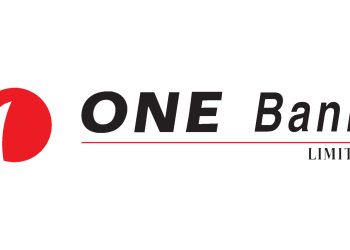
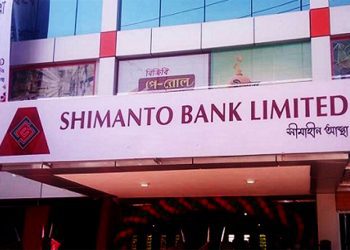

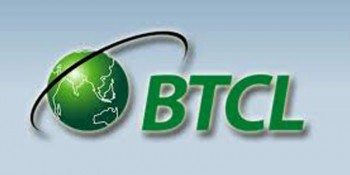
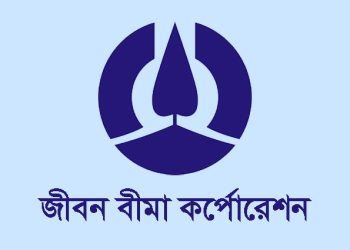
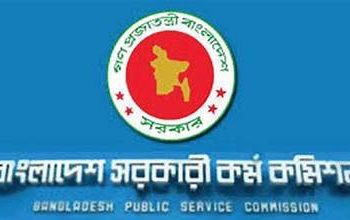

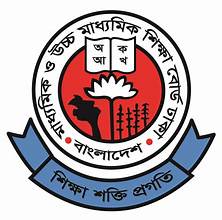







Discussion about this post